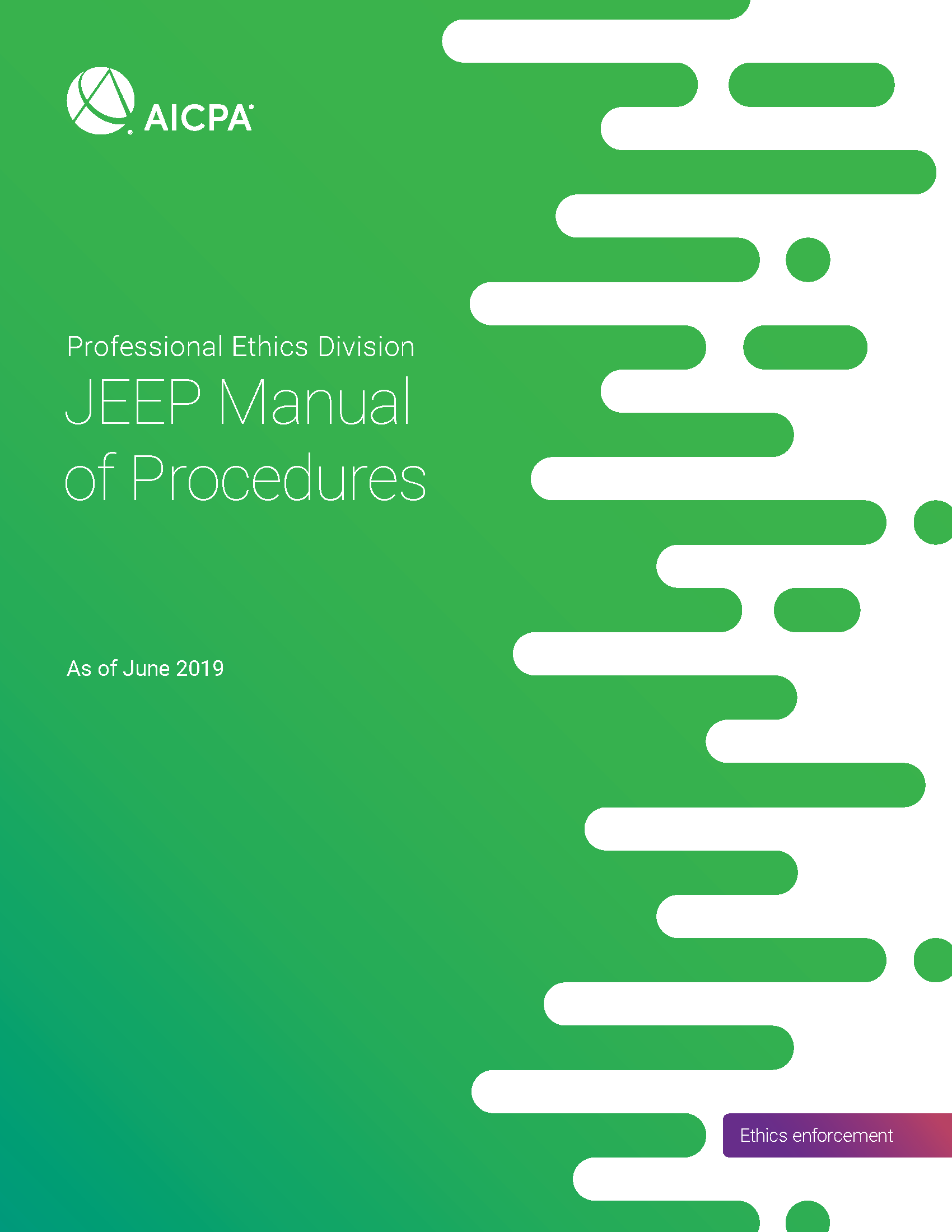Ensuring Integrity in Accounting
Ethics is a crucial part of the accounting profession for many reasons, including maintaining trust, protecting public interest, preserving professional reputations, and mitigating risks for individuals and organizations. Upholding ethical standards not only promotes transparency and integrity in financial reporting but also contributes to the long-term sustainability and credibility of the profession.
At the PICPA, we take ethics very seriously. Our Professional Ethics Committee is responsible for investigating complaints against members, maintaining the PICPA Code of Professional Conduct, monitoring global ethics trends, and ethics education and outreach. Members are elected to this statewide committee on a rotating basis to serve three-year terms.
The PICPA is also a participating state society in the Joint Ethics Enforcement Program (JEEP), an agreement between the American Institute of CPAs and state CPA societies. This initiative aims to enforce ethical standards among members by aligning Codes of Professional Conduct across the country. This cooperative effort ensures consistent application of ethical standards across jurisdictions and promotes accountability within the accounting profession.
Code of Professional Conduct
The PICPA’s Code of Professional Conduct mirrors the AICPA Code of Professional Conduct with a few exceptions.
Sections included in the AICPA Code but not in the PICPA Code:
- 1.400.010 – Discrimination and Harassment in Employment Practices
- 1.400.070 – Confidential Information Obtained from Employment or Volunteer Activities
- 2.400.010 – Discrimination and Harassment in Employment Practices
- 2.400.070 – Confidential Information Obtained from Employment or Volunteer Activities
- 3.400.010 – Discrimination and Harassment in Employment Practices
- 3.400.070 – Confidential Information Obtained from Employment or Volunteer Activities
Section included in the PICPA Code but not in the AICPA Code:
- ET 501 – 2 Failure to Cooperate in an Ethics Investigation.
- Failure of a member to cooperate in an investigation by the Professional Ethics Committee by failure or refusal to make a substantive response to a letter of inquiry from the committee is an act discreditable to the profession in violation of Rule 501.
Ethics Complaints
The PICPA Professional Ethics Committee investigates complaints against PICPA members for violations of the Code of Professional Conduct, and the Pennsylvania Department of State, Professional Compliance Office, investigates complaints against all practitioners in Pennsylvania on behalf of the State Board of Accountancy.
Filing a Complaint with the PICPA
The PICPA will conduct an initial review of all ethics complaints and, if necessary, an investigation under the Joint Ethics Enforcement Program (JEEP) procedures. Investigations can result in disciplinary action including suspension or termination of membership, but will not affect the individual’s state CPA license.
All complaints about members must be submitted in writing to ethics@picpa.org. If you have questions or would like to verify is someone is a member, you can call 888.272.2001.
Filing a Complaint with the Pennsylvania State Board of Accountancy (SBOA)
The SBOA for investigates violations of the Pennsylvania CPA Law and Rules and Regulations, and can result in disciplinary actions against individuals, including suspension of their CPA licenses.
You must use the following forms to submit your complaint:
- Use IRS Form 14, 157 Make a Complaint about a Tax Return Preparer.
- Complaints can be filed using the Department of State's Statement of Complaint Form.
- Find out if someone is licensed in Pennsylvania using the Department of State’s License Verification.
Complaints regarding unlicensed practitioners should be directed to the Pennsylvania State Board of Accountancy.
Disciplinary Actions
The PICPA Bylaws indicate that a member is subject to automatic discipline, as determined by the Committee on Professional Ethics, when the member has been disciplined by a body that is authorized to regulate CPAs. Publication of disciplinary actions may be made in the PICPA CPA Journal and on the PICPA’s web site.


